afterLoad (456.22KB) (2.03ms)
afterInitialise (1.27MB) (22.43ms)
afterRoute (840.55KB) (7.26ms)
beforeRenderComponent com_tags (20.62KB) (231μs)
afterRenderComponent com_tags (1.59MB) (119ms)
afterDispatch (28.09KB) (3.93ms)
beforeRenderRawModule mod_articles_category (READ MORE...) (439.86KB) (22.08ms)
Before Access::preloadComponents (all components) (50.9KB) (5.65ms)
After Access::preloadComponents (all components) (103.05KB) (4.73ms)
Before Access::getAssetRules (id:8 name:com_content) (840B) (17μs)
After Access::getAssetRules (id:8 name:com_content) (7.05KB) (36μs)
afterRenderRawModule mod_articles_category (READ MORE...) (1.27KB) (249ms)
beforeRenderRawModule mod_custom (BOOST YOUR IMMUNE DEFENSE) (6.45KB) (27μs)
afterRenderRawModule mod_custom (BOOST YOUR IMMUNE DEFENSE) (3.8KB) (187μs)
beforeRenderRawModule mod_tags_popular (Search) (2.36KB) (1.04ms)
afterRenderRawModule mod_tags_popular (Search) (11.5KB) (280ms)
beforeRenderRawModule mod_custom (Get additionel and more detailed knowledge ) (816B) (27μs)
afterRenderRawModule mod_custom (Get additionel and more detailed knowledge ) (1.55KB) (47μs)
beforeRenderRawModule mod_custom (Overview of vitamins, minerals, and essential fatty acids) (768B) (12μs)
afterRenderRawModule mod_custom (Overview of vitamins, minerals, and essential fatty acids) (960B) (23μs)
beforeRenderRawModule mod_custom (Q10 goes by many names) (608B) (9μs)
afterRenderRawModule mod_custom (Q10 goes by many names) (928B) (20μs)
beforeRenderRawModule mod_custom (Check this before you buy a Q10 product) (752B) (9μs)
afterRenderRawModule mod_custom (Check this before you buy a Q10 product) (944B) (20μs)
beforeRenderRawModule mod_custom (Are you taking supplements) (736B) (9μs)
afterRenderRawModule mod_custom (Are you taking supplements) (1.03KB) (19μs)
beforeRenderRawModule mod_custom (Weight loss that works) (736B) (9μs)
afterRenderRawModule mod_custom (Weight loss that works) (1.03KB) (20μs)
beforeRenderRawModule mod_custom (Antiaging) (720B) (10μs)
afterRenderRawModule mod_custom (Antiaging) (912B) (3.05ms)
beforeRenderRawModule mod_menu (Are you getting enough vitamins and minerals?) (2.5KB) (26μs)
afterRenderRawModule mod_menu (Are you getting enough vitamins and minerals?) (22.39KB) (506μs)
beforeRenderRawModule mod_menu (The key to increased well-being) (736B) (20μs)
afterRenderRawModule mod_menu (The key to increased well-being) (17.83KB) (254μs)
beforeRenderRawModule mod_menu (Did you know.....) (720B) (16μs)
afterRenderRawModule mod_menu (Did you know.....) (25.52KB) (3.5ms)
beforeRenderRawModule mod_custom (Useful Links) (1.06KB) (20μs)
afterRenderRawModule mod_custom (Useful Links) (1.02KB) (38μs)
beforeRenderRawModule mod_custom (Chronic fatigue tied Alan to his bed but Q10 capsules saved him:) (244.28KB) (6.05ms)
afterRenderRawModule mod_custom (Chronic fatigue tied Alan to his bed but Q10 capsules saved him:) (1.06KB) (39μs)
beforeRenderModule mod_custom (Chronic fatigue tied Alan to his bed but Q10 capsules saved him:) (768B) (4μs)
afterRenderModule mod_custom (Chronic fatigue tied Alan to his bed but Q10 capsules saved him:) (1.3KB) (62μs)
beforeRenderRawModule mod_custom (Cholesterol-lowering without side effects:) (368B) (13μs)
afterRenderRawModule mod_custom (Cholesterol-lowering without side effects:) (1.06KB) (22μs)
beforeRenderModule mod_custom (Cholesterol-lowering without side effects:) (752B) (2μs)
afterRenderModule mod_custom (Cholesterol-lowering without side effects:) (1.28KB) (31μs)
beforeRenderModule mod_articles_category (READ MORE...) (20.82KB) (328μs)
afterRenderModule mod_articles_category (READ MORE...) (1.25KB) (3.08ms)
beforeRenderModule mod_custom (BOOST YOUR IMMUNE DEFENSE) (6.81KB) (23μs)
afterRenderModule mod_custom (BOOST YOUR IMMUNE DEFENSE) (1.28KB) (37μs)
beforeRenderModule mod_tags_popular (Search) (1.98KB) (14μs)
afterRenderModule mod_tags_popular (Search) (1.27KB) (25μs)
beforeRenderModule mod_custom (Get additionel and more detailed knowledge ) (1.17KB) (10μs)
afterRenderModule mod_custom (Get additionel and more detailed knowledge ) (1.3KB) (23μs)
beforeRenderModule mod_custom (Overview of vitamins, minerals, and essential fatty acids) (384B) (9μs)
afterRenderModule mod_custom (Overview of vitamins, minerals, and essential fatty acids) (1.31KB) (23μs)
beforeRenderModule mod_custom (Q10 goes by many names) (208B) (9μs)
afterRenderModule mod_custom (Q10 goes by many names) (1.27KB) (24μs)
beforeRenderModule mod_custom (Check this before you buy a Q10 product) (352B) (10μs)
afterRenderModule mod_custom (Check this before you buy a Q10 product) (1.28KB) (22μs)
beforeRenderModule mod_custom (Are you taking supplements) (352B) (9μs)
afterRenderModule mod_custom (Are you taking supplements) (1.28KB) (22μs)
beforeRenderModule mod_custom (Weight loss that works) (336B) (9μs)
afterRenderModule mod_custom (Weight loss that works) (1.27KB) (21μs)
beforeRenderModule mod_custom (Antiaging) (336B) (9μs)
afterRenderModule mod_custom (Antiaging) (3.77KB) (25μs)
beforeRenderModule mod_menu (Are you getting enough vitamins and minerals?) (2.13KB) (11μs)
afterRenderModule mod_menu (Are you getting enough vitamins and minerals?) (1.3KB) (25μs)
beforeRenderModule mod_menu (The key to increased well-being) (352B) (11μs)
afterRenderModule mod_menu (The key to increased well-being) (1.28KB) (21μs)
beforeRenderModule mod_menu (Did you know.....) (336B) (10μs)
afterRenderModule mod_menu (Did you know.....) (1.27KB) (21μs)
beforeRenderModule mod_custom (Useful Links) (1.44KB) (9μs)
afterRenderModule mod_custom (Useful Links) (1.27KB) (22μs)
beforeRenderRawModule mod_menu (Main Menu - English) (29.14KB) (3.83ms)
afterRenderRawModule mod_menu (Main Menu - English) (192.45KB) (3.37ms)
beforeRenderModule mod_menu (Main Menu - English) (720B) (5μs)
afterRenderModule mod_menu (Main Menu - English) (4.86KB) (72μs)
beforeRenderRawModule mod_languages (Sprogskift) (3.94KB) (19μs)
afterRenderRawModule mod_languages (Sprogskift) (22.55KB) (6.81ms)
beforeRenderModule mod_languages (Sprogskift) (720B) (6μs)
afterRenderModule mod_languages (Sprogskift) (5.31KB) (21μs)
beforeRenderRawModule mod_finder () (6.34KB) (11μs)
afterRenderRawModule mod_finder () (128.59KB) (8.87ms)
beforeRenderModule mod_finder () (704B) (4μs)
afterRenderModule mod_finder () (3.29KB) (33μs)
beforeRenderRawModule mod_custom () (6.62KB) (141μs)
afterRenderRawModule mod_custom () (22.64KB) (4.5ms)
beforeRenderModule mod_custom () (704B) (7μs)
afterRenderModule mod_custom () (1.23KB) (54μs)
beforeRenderRawModule mod_menu (Main Menu - English) (5.07KB) (108μs)
afterRenderRawModule mod_menu (Main Menu - English) (6.3KB) (3.2ms)
beforeRenderModule mod_menu (Main Menu - English) (720B) (6μs)
afterRenderModule mod_menu (Main Menu - English) (1.25KB) (58μs)
beforeRenderRawModule mod_languages (Sprogskift Mobil) (912B) (20μs)
afterRenderRawModule mod_languages (Sprogskift Mobil) (3.89KB) (723μs)
beforeRenderModule mod_languages (Sprogskift Mobil) (720B) (3μs)
afterRenderModule mod_languages (Sprogskift Mobil) (1.27KB) (39μs)
beforeRenderRawModule mod_finder () (2.3KB) (9μs)
afterRenderRawModule mod_finder () (6.29KB) (1.99ms)
beforeRenderModule mod_finder () (704B) (5μs)
afterRenderModule mod_finder () (1.23KB) (55μs)
beforeRenderRawModule mod_custom () (8.66KB) (192μs)
afterRenderRawModule mod_custom () (904B) (146μs)
beforeRenderModule mod_custom () (704B) (3μs)
afterRenderModule mod_custom () (2.43KB) (26μs)
beforeRenderRawModule mod_custom () (688B) (84μs)
afterRenderRawModule mod_custom () (896B) (1.21ms)
beforeRenderModule mod_custom () (704B) (6μs)
afterRenderModule mod_custom () (2.71KB) (33μs)
afterRender (286.83KB) (11.04ms)
| 1 x afterRenderRawModule mod_tags_popular (Search) (11.5KB) (35.73%) | 279.72ms |
| 1 x afterRenderRawModule mod_articles_category (READ MORE...) (1.27KB) (31.86%) | 249.43ms |
| 1 x afterRenderComponent com_tags (1.59MB) (15.22%) | 119.12ms |
| 1 x afterInitialise (1.27MB) (2.87%) | 22.43ms |
| 1 x beforeRenderRawModule mod_articles_category (READ MORE...) (439.86KB) (2.82%) | 22.08ms |
| 1 x afterRender (286.83KB) (1.41%) | 11.04ms |
| 1 x afterRenderRawModule mod_finder () (128.59KB) (1.13%) | 8.87ms |
| 1 x afterRoute (840.55KB) (0.93%) | 7.26ms |
| 1 x afterRenderRawModule mod_languages (Sprogskift) (22.55KB) (0.87%) | 6.81ms |
| 1 x beforeRenderRawModule mod_custom (Chronic fatigue tied Alan to his bed but Q10 capsules saved him:) (244.28KB) (0.77%) | 6.05ms |
| 1 x Before Access::preloadComponents (all components) (50.9KB) (0.72%) | 5.65ms |
| 1 x After Access::preloadComponents (all components) (103.05KB) (0.6%) | 4.73ms |
| 1 x afterRenderRawModule mod_custom () (22.64KB) (0.58%) | 4.50ms |
| 1 x afterDispatch (28.09KB) (0.5%) | 3.93ms |
| 1 x beforeRenderRawModule mod_menu (Main Menu - English) (29.14KB) (0.49%) | 3.83ms |
| 1 x afterRenderRawModule mod_menu (Did you know.....) (25.52KB) (0.45%) | 3.50ms |
| 1 x afterRenderRawModule mod_menu (Main Menu - English) (192.45KB) (0.43%) | 3.37ms |
| 1 x afterRenderRawModule mod_menu (Main Menu - English) (6.3KB) (0.41%) | 3.20ms |
| 1 x afterRenderModule mod_articles_category (READ MORE...) (1.25KB) (0.39%) | 3.08ms |
| 1 x afterRenderRawModule mod_custom (Antiaging) (912B) (0.39%) | 3.05ms |
| 1 x afterLoad (456.22KB) (0.26%) | 2.03ms |
| 1 x afterRenderRawModule mod_finder () (6.29KB) (0.25%) | 1.99ms |
| 1 x afterRenderRawModule mod_custom () (896B) (0.16%) | 1.21ms |
| 1 x beforeRenderRawModule mod_tags_popular (Search) (2.36KB) (0.13%) | 1.04ms |
| 1 x afterRenderRawModule mod_languages (Sprogskift Mobil) (3.89KB) (0.09%) | 723μs |
| 1 x afterRenderRawModule mod_menu (Are you getting enough vitamins and minerals?) (22.39KB) (0.06%) | 506μs |
| 1 x beforeRenderModule mod_articles_category (READ MORE...) (20.82KB) (0.04%) | 328μs |
| 1 x afterRenderRawModule mod_menu (The key to increased well-being) (17.83KB) (0.03%) | 254μs |
| 1 x beforeRenderComponent com_tags (20.62KB) (0.03%) | 231μs |
| 1 x beforeRenderRawModule mod_custom () (8.66KB) (0.02%) | 192μs |
| 1 x afterRenderRawModule mod_custom (BOOST YOUR IMMUNE DEFENSE) (3.8KB) (0.02%) | 187μs |
| 1 x afterRenderRawModule mod_custom () (904B) (0.02%) | 146μs |
| 1 x beforeRenderRawModule mod_custom () (6.62KB) (0.02%) | 141μs |
| 1 x beforeRenderRawModule mod_menu (Main Menu - English) (5.07KB) (0.01%) | 108μs |
| 1 x beforeRenderRawModule mod_custom () (688B) (0.01%) | 84μs |
| 1 x afterRenderModule mod_menu (Main Menu - English) (4.86KB) (0.01%) | 72μs |
| 1 x afterRenderModule mod_custom (Chronic fatigue tied Alan to his bed but Q10 capsules saved him:) (1.3KB) (0.01%) | 62μs |
| 1 x afterRenderModule mod_menu (Main Menu - English) (1.25KB) (0.01%) | 58μs |
| 1 x afterRenderModule mod_finder () (1.23KB) (0.01%) | 55μs |
| 1 x afterRenderModule mod_custom () (1.23KB) (0.01%) | 54μs |
| 1 x afterRenderRawModule mod_custom (Get additionel and more detailed knowledge ) (1.55KB) (0.01%) | 47μs |
| 1 x afterRenderRawModule mod_custom (Chronic fatigue tied Alan to his bed but Q10 capsules saved him:) (1.06KB) (0%) | 39μs |
| 1 x afterRenderModule mod_languages (Sprogskift Mobil) (1.27KB) (0%) | 39μs |
| 1 x afterRenderRawModule mod_custom (Useful Links) (1.02KB) (0%) | 38μs |
| 1 x afterRenderModule mod_custom (BOOST YOUR IMMUNE DEFENSE) (1.28KB) (0%) | 37μs |
| 1 x After Access::getAssetRules (id:8 name:com_content) (7.05KB) (0%) | 36μs |
| 1 x afterRenderModule mod_finder () (3.29KB) (0%) | 33μs |
| 1 x afterRenderModule mod_custom () (2.71KB) (0%) | 33μs |
| 1 x afterRenderModule mod_custom (Cholesterol-lowering without side effects:) (1.28KB) (0%) | 31μs |
| 1 x beforeRenderRawModule mod_custom (BOOST YOUR IMMUNE DEFENSE) (6.45KB) (0%) | 27μs |
| 1 x beforeRenderRawModule mod_custom (Get additionel and more detailed knowledge ) (816B) (0%) | 27μs |
| 1 x beforeRenderRawModule mod_menu (Are you getting enough vitamins and minerals?) (2.5KB) (0%) | 26μs |
| 1 x afterRenderModule mod_custom () (2.43KB) (0%) | 26μs |
| 1 x afterRenderModule mod_tags_popular (Search) (1.27KB) (0%) | 25μs |
| 1 x afterRenderModule mod_custom (Antiaging) (3.77KB) (0%) | 25μs |
| 1 x afterRenderModule mod_menu (Are you getting enough vitamins and minerals?) (1.3KB) (0%) | 25μs |
| 1 x afterRenderModule mod_custom (Q10 goes by many names) (1.27KB) (0%) | 24μs |
| 1 x afterRenderRawModule mod_custom (Overview of vitamins, minerals, and essential fatty acids) (960B) (0%) | 23μs |
| 1 x afterRenderModule mod_custom (Get additionel and more detailed knowledge ) (1.3KB) (0%) | 23μs |
| 1 x afterRenderModule mod_custom (Overview of vitamins, minerals, and essential fatty acids) (1.31KB) (0%) | 23μs |
| 1 x beforeRenderModule mod_custom (BOOST YOUR IMMUNE DEFENSE) (6.81KB) (0%) | 23μs |
| 1 x afterRenderModule mod_custom (Are you taking supplements) (1.28KB) (0%) | 22μs |
| 1 x afterRenderRawModule mod_custom (Cholesterol-lowering without side effects:) (1.06KB) (0%) | 22μs |
| 1 x afterRenderModule mod_custom (Check this before you buy a Q10 product) (1.28KB) (0%) | 22μs |
| 1 x afterRenderModule mod_custom (Useful Links) (1.27KB) (0%) | 22μs |
| 1 x afterRenderModule mod_custom (Weight loss that works) (1.27KB) (0%) | 21μs |
| 1 x afterRenderModule mod_menu (The key to increased well-being) (1.28KB) (0%) | 21μs |
| 1 x afterRenderModule mod_menu (Did you know.....) (1.27KB) (0%) | 21μs |
| 1 x afterRenderModule mod_languages (Sprogskift) (5.31KB) (0%) | 21μs |
| 1 x afterRenderRawModule mod_custom (Q10 goes by many names) (928B) (0%) | 20μs |
| 1 x afterRenderRawModule mod_custom (Check this before you buy a Q10 product) (944B) (0%) | 20μs |
| 1 x afterRenderRawModule mod_custom (Weight loss that works) (1.03KB) (0%) | 20μs |
| 1 x beforeRenderRawModule mod_menu (The key to increased well-being) (736B) (0%) | 20μs |
| 1 x beforeRenderRawModule mod_custom (Useful Links) (1.06KB) (0%) | 20μs |
| 1 x beforeRenderRawModule mod_languages (Sprogskift Mobil) (912B) (0%) | 20μs |
| 1 x beforeRenderRawModule mod_languages (Sprogskift) (3.94KB) (0%) | 19μs |
| 1 x afterRenderRawModule mod_custom (Are you taking supplements) (1.03KB) (0%) | 19μs |
| 1 x Before Access::getAssetRules (id:8 name:com_content) (840B) (0%) | 17μs |
| 1 x beforeRenderRawModule mod_menu (Did you know.....) (720B) (0%) | 16μs |
| 3 x beforeRenderModule mod_custom () (704B) (0%) | 16μs |
| 1 x beforeRenderModule mod_tags_popular (Search) (1.98KB) (0%) | 14μs |
| 1 x beforeRenderRawModule mod_custom (Cholesterol-lowering without side effects:) (368B) (0%) | 13μs |
| 1 x beforeRenderRawModule mod_custom (Overview of vitamins, minerals, and essential fatty acids) (768B) (0%) | 12μs |
| 1 x beforeRenderModule mod_menu (Are you getting enough vitamins and minerals?) (2.13KB) (0%) | 11μs |
| 1 x beforeRenderModule mod_menu (The key to increased well-being) (352B) (0%) | 11μs |
| 2 x beforeRenderModule mod_menu (Main Menu - English) (720B) (0%) | 11μs |
| 1 x beforeRenderRawModule mod_finder () (6.34KB) (0%) | 11μs |
| 1 x beforeRenderRawModule mod_custom (Antiaging) (720B) (0%) | 10μs |
| 1 x beforeRenderModule mod_custom (Get additionel and more detailed knowledge ) (1.17KB) (0%) | 10μs |
| 1 x beforeRenderModule mod_custom (Check this before you buy a Q10 product) (352B) (0%) | 10μs |
| 1 x beforeRenderModule mod_menu (Did you know.....) (336B) (0%) | 10μs |
| 1 x beforeRenderRawModule mod_custom (Check this before you buy a Q10 product) (752B) (0%) | 9μs |
| 1 x beforeRenderRawModule mod_custom (Are you taking supplements) (736B) (0%) | 9μs |
| 1 x beforeRenderRawModule mod_custom (Weight loss that works) (736B) (0%) | 9μs |
| 1 x beforeRenderModule mod_custom (Q10 goes by many names) (208B) (0%) | 9μs |
| 1 x beforeRenderModule mod_custom (Are you taking supplements) (352B) (0%) | 9μs |
| 1 x beforeRenderModule mod_custom (Antiaging) (336B) (0%) | 9μs |
| 1 x beforeRenderModule mod_custom (Useful Links) (1.44KB) (0%) | 9μs |
| 1 x beforeRenderRawModule mod_finder () (2.3KB) (0%) | 9μs |
| 1 x beforeRenderRawModule mod_custom (Q10 goes by many names) (608B) (0%) | 9μs |
| 1 x beforeRenderModule mod_custom (Overview of vitamins, minerals, and essential fatty acids) (384B) (0%) | 9μs |
| 1 x beforeRenderModule mod_custom (Weight loss that works) (336B) (0%) | 9μs |
| 2 x beforeRenderModule mod_finder () (704B) (0%) | 9μs |
| 1 x beforeRenderModule mod_languages (Sprogskift) (720B) (0%) | 6μs |
| 1 x beforeRenderModule mod_custom (Chronic fatigue tied Alan to his bed but Q10 capsules saved him:) (768B) (0%) | 4μs |
| 1 x beforeRenderModule mod_languages (Sprogskift Mobil) (720B) (0%) | 3μs |
| 1 x beforeRenderModule mod_custom (Cholesterol-lowering without side effects:) (752B) (0%) | 2μs |
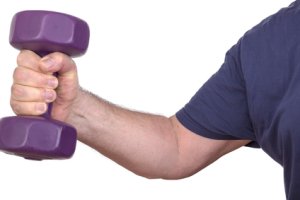 Ageing processes are associated with loss of muscle mass and impaired physical performance, both of which tend to lower quality of life. It is commonly known that coenzyme Q10 plays a significant role in cellular energy turnover and protects against oxidative stress. Now, two independent cohort studies even show a relation between the body’s Q10 status and muscle strength. Earlier research even suggests that Q10 supplements may help older people develop more youthful muscle fibers. Individuals who take cholesterol-lowering statins are advised to take Q10 supplements.
Ageing processes are associated with loss of muscle mass and impaired physical performance, both of which tend to lower quality of life. It is commonly known that coenzyme Q10 plays a significant role in cellular energy turnover and protects against oxidative stress. Now, two independent cohort studies even show a relation between the body’s Q10 status and muscle strength. Earlier research even suggests that Q10 supplements may help older people develop more youthful muscle fibers. Individuals who take cholesterol-lowering statins are advised to take Q10 supplements.







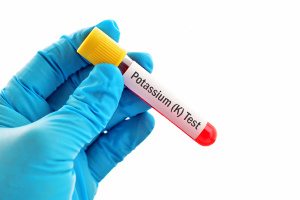 Loss of muscle mass may be a result of a number of factors such as lack of exercise, too little protein, and ageing. Insulin resistance and acid accumulation are also related to loss of muscle mass, and it looks as if increased intake of vegetables with
Loss of muscle mass may be a result of a number of factors such as lack of exercise, too little protein, and ageing. Insulin resistance and acid accumulation are also related to loss of muscle mass, and it looks as if increased intake of vegetables with 
 Girls with high blood levels of
Girls with high blood levels of  Magnesium is an essential mineral. An adult contains around 20-30 grams of magnesium. Approximately half of the body's magnesium supply is stored in the bones. The rest is distributed in the muscles, liver, nerve tissue and other soft tissues. Magnesium is mainly found inside the cells where it supports over 300 different enzymatic processes.
Magnesium is an essential mineral. An adult contains around 20-30 grams of magnesium. Approximately half of the body's magnesium supply is stored in the bones. The rest is distributed in the muscles, liver, nerve tissue and other soft tissues. Magnesium is mainly found inside the cells where it supports over 300 different enzymatic processes.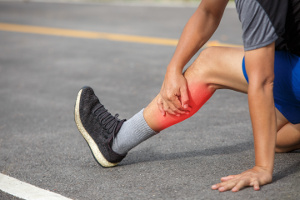
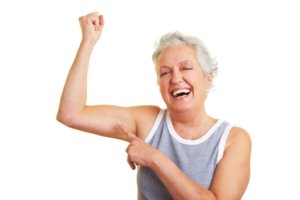 Most people thrive on the idea of staying physically active throughout life, but as we grow older, our skeletal muscle slowly vanishes and our figure changes. This is known as sarcopenia and is one of the main reasons why older people become more fragile and perhaps even disabled. Exercise and diet play a major role, and it seems that the official dietary guidelines are not optimal and should focus more on increased intake of protein as well as lysine, vitamin D, and omega-3 according to a new Canadian study. Earlier research shows that magnesium, selenium, and Q10 are also important for muscle mass and strength.
Most people thrive on the idea of staying physically active throughout life, but as we grow older, our skeletal muscle slowly vanishes and our figure changes. This is known as sarcopenia and is one of the main reasons why older people become more fragile and perhaps even disabled. Exercise and diet play a major role, and it seems that the official dietary guidelines are not optimal and should focus more on increased intake of protein as well as lysine, vitamin D, and omega-3 according to a new Canadian study. Earlier research shows that magnesium, selenium, and Q10 are also important for muscle mass and strength.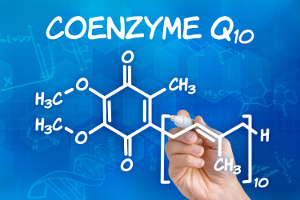
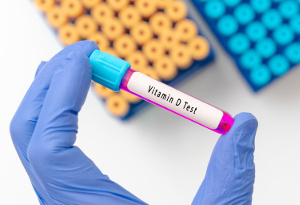 Lack of
Lack of  Older people with a high intake of
Older people with a high intake of  There are several kinds of vitamin D with the two most important being:
There are several kinds of vitamin D with the two most important being: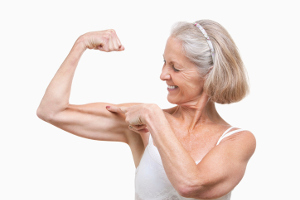 As you grow older your skeletal muscle slowly dwindles, you lose muscle strength, and your figure changes. This phenomenon is known as sarcopenia and is one of the main reasons why older people gradually become frail and perhaps even invalid. Both diet and exercise play an important role and according to a new study from Trinity College Dublin, lack of
As you grow older your skeletal muscle slowly dwindles, you lose muscle strength, and your figure changes. This phenomenon is known as sarcopenia and is one of the main reasons why older people gradually become frail and perhaps even invalid. Both diet and exercise play an important role and according to a new study from Trinity College Dublin, lack of 
 "After about one week of taking the Q10 supplement I could feel a huge difference," says 23-year old Alan Piccini, who has been suffering from extreme fatigue and muscle aches ever since he was a child.
"After about one week of taking the Q10 supplement I could feel a huge difference," says 23-year old Alan Piccini, who has been suffering from extreme fatigue and muscle aches ever since he was a child. “Taking capsules with co-enzyme Q10 has freed me of the severe side effects of my cholesterol lowering medicine,” Mrs Franken explains.
“Taking capsules with co-enzyme Q10 has freed me of the severe side effects of my cholesterol lowering medicine,” Mrs Franken explains.